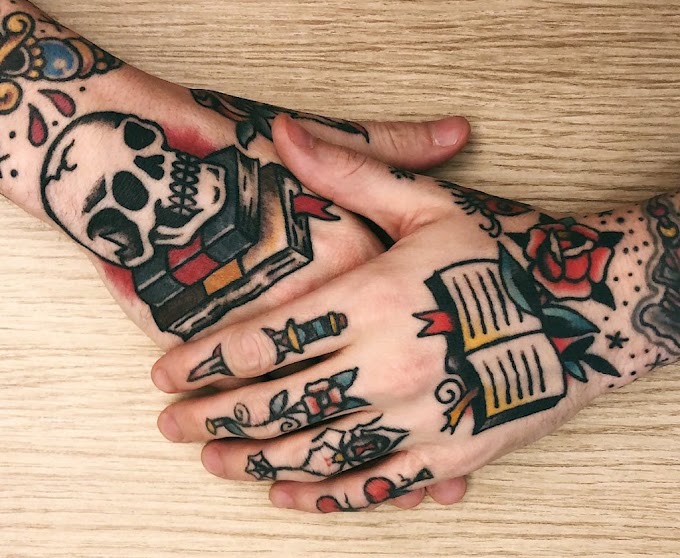Intro
Have you ever wanted to change your life? Maybe, you wanted
to wear a new style of clothing or change your hair to a different color.
Perhaps, you wanted to get more exercise, so you began playing a new sport. For
some people, changes like this can be drastic. You might decide that taking risks can
make you feel more alive. This might be true, but your friends may think that
you’re going off the deep end.
When a person goes off the deep end, they choose to do
things without thinking about the results. For example, going skydiving or
taking a fire walking class might sound like fun, but these activities can
also be dangerous. It is important to think about the risks of these things
before you do them. If you take too many risks and make too many drastic
changes, your friends and family will begin to worry.
Marni
and Jessica are worried about Gary. Has he gone off the deep end? Find out in
today’s English lesson.
Dialogue
Jessica : Have
you noticed anything unusual about Gary lately?
Marni : Only that he seems to be going off the deep end!
Jessica : Oh, good. It’s not
just me.
Marni : No. Definitely not.
Jessica :
Yesterday, I overheard him say that he’s thinking about getting a mohawk.
Marni : What? He told me that he is signing up for a fire walking course.
Jessica : I overheard him mention the word “skydiving” when he
was on the phone with someone this morning.
Marni : Well, according
to Brian, Gary asked him if he wanted to
go to the “Running of the Bulls” in Spain next year.
Jessica : What is going on?
Why is he acting like this?
Marni : Rumor has it that when he learned Sara wasn’t interested, he
decided to do something drastic.
Jessica : But why?
Marni : I don’t know. I guess that he feels like taking risks makes
him feel more alive. And possibly braver, too?
Jessica : I guess I can
understand that. But I still think he’s gone off the deep end.
Marni : Seriously. A mohawk?
Discussion
Gary has been making some drastic changes
in his life, and his friends have noticed. Jessica and Marni begin to talk about some of the strange
things they have overheard. Gary is planning to get a mohawk hairstyle and go skydiving according
to Jessica. Marni shares the rumors that
she has heard. She says that Gary is going to practice fire walking and
travel to Spain.
Jessica is a little worried about Gary, and she asks Marni
why he might be doing these things. Although Marni doesn’t know the answer, she
can guess. She thinks that Gary feels better when he is taking risks. It
might make him feel braver than he felt in the past. That could be true, but his
friends still think that he’s gone off the deep end.
Did
you ever go off the deep end? Did you take any risks in order to feel braver?
Grammar Point
Comparatives and Superlatives
Marni
and Jessica are talking about Gary. Marni says, “I guess that he feels like
taking risks makes him feel more alive.
And possibly braver, too?” She uses
two comparative adjectives.
Comparatives and superlatives help us
compare people, places, or things.
There
are two ways to form comparatives.
The first way is for long adjectives,
which have three or more syllables. With long
adjectives, we use more to
form a comparative phrase with than.
For example, “Sarah is more beautiful thanMartha.”
The second way is for short adjectives,
which have only one or two syllables. With short
adjectives, we add -er to
the end of the word, as in, “Jacob is smarter
than Ed.” For short adjectives
ending in y, like “happy,” we drop the “y” and add -ier. For example, “Lucy is happier than Rob.”
Be
careful! Some two-syllable adjectives are irregular. When Marni says, “…taking
risks makes him feel more alive,”
she uses the comparative more alive. Alive only has two syllables, but we never
say “aliver.”
Marni
uses another comparative when she says, “And possibly braver….” She doesn’t use than after these comparative adjectives
because she is reducing the comparative grammar. She could have said, “I guess
that he feels like taking risks makes him feel more alive than he felt before. And possiblybraver than before, too?”
Similarly,
we form superlatives in two
different ways, depending on the length of the adjective. With long adjectives we use the most, as in “He is the most intelligent person I know.”
With short adjectives, we add -est to the end of the word. For example,
“Johnny is the fastest runner
on the team.” For short adjectives ending in y, we drop the “y” and add -iest, as in, “She is the prettiest girl in the world.”
Which
is correct, “The mountains are peacefuler than the city,” or, “The mountains
are more peaceful than the city”?
Vocab
notice v.
Definition : become
aware of; see
Example : Did you
notice that she’s wearing two different socks?
………………………………………………………
overhear v.
Definition : hear
people talking about something; hear something private or secret
Example : I could
overhear my parents talking about my Christmas gifts.
………………………………………………………
according to expr.
Definition : as
someone said or wrote
Example : According
to my dad, boys are cleaner than girls. But I disagree.
………………………………………………………..
rumor has it expr.
Definition : people
say; there is gossip about this
Example : Rumor has
it that Maria is dating Charles again.
……………………………………………………….
drastic adj.
Definition : extreme,
major; having a big effect
Example : When the
new CEO began, there were drastic changes in the company.
…………………………………………….
take risks v.
Definition: try new
or dangerous activities
Example: I took a
risk and went white water rafting this summer. It was fun!
………………………………………………………….
go off the deep end expr.
Definition : make
big decisions without thinking about them first
Example : My
brother changed everything in his life. He really went off the deep end.
……………………………………………………………
skydive v.
Definition : jump
out of a plane with a parachute
Example : I’m
taking a skydiving class, so I can skydive on my 30th birthday.
………………………………………………………………
fire walking n.
Definition : activity
of walking barefoot on hot coals or ashes
Example : We’re
going to a fire-walking ceremony in Sri Lanka.
……………………………………………………………….
brave adj.
Definition : not
afraid; willing to do difficult things
Example : Mike is
very brave. He went swimming with sharks!








0 Comments